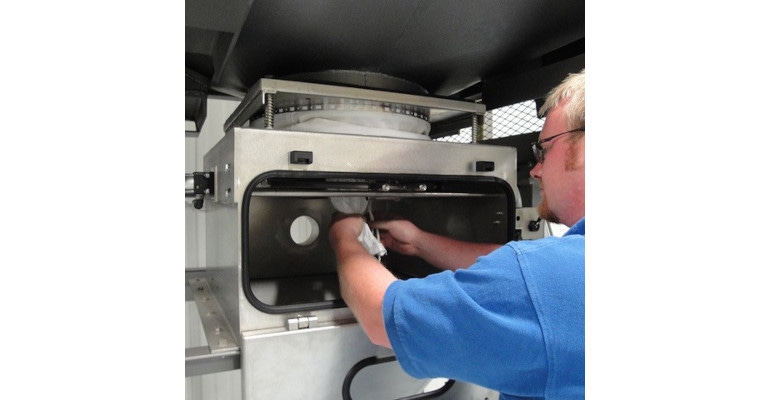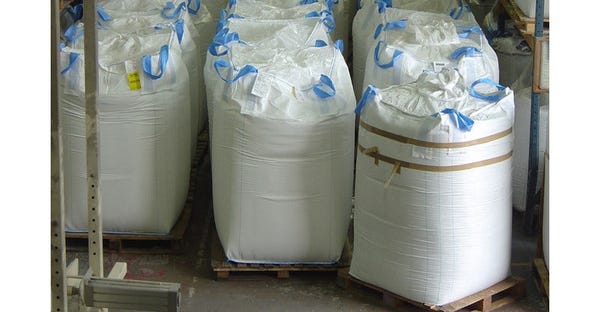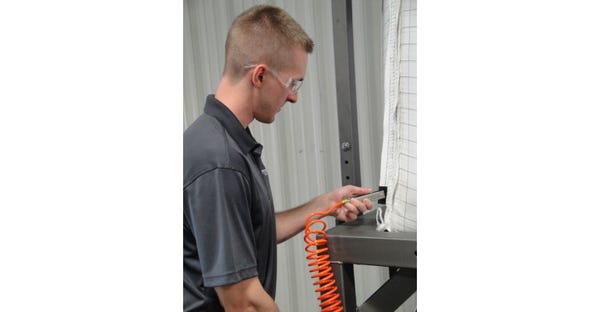The ROI of Providing Optimum Dusting Mitigation When Discharging Bulk Bags
Providing optimum mitigation during bulk bag discharge reduces the risk of accidents and injuries.
September 22, 2023

Andy Forrester, vice president of sales (Americas), Spiroflow
In manufacturing and industrial processes, efficiency and productivity are paramount. One aspect that often goes unnoticed but significantly impacts overall performance is how we handle bulk bag discharging. The way we sell our products, reduced product loss, labor savings, and safety are all intertwined in this process. In this article, we will delve into the ROI (return on investment) of providing optimum dusting mitigation when discharging bulk bags and how it positively impacts various aspects of production.
When you invest in proper dusting mitigation methods for bulk bag discharge, you significantly reduce product loss. This is the most direct and measurable aspect of ROI in this context. By utilizing specialized equipment or processes designed for efficient bag emptying, you can ensure that almost every bit of product makes it to the production line. This means less waste and more product reaching your process.

Keeping Product Off the Floor
Reducing product loss goes hand in hand with keeping the product off the floor. Optimal mitigation methods minimize this risk, ensuring the product goes where it should - into the production process, not on the floor.
Reduced Cleaning Time
Cleaning up a mess from spilled product is time-consuming and costly. It takes time away from productivity and requires additional labor. When you adopt efficient bulk bag discharge techniques, you save on cleaning time, and your workspace remains cleaner, safer, and more conducive to productivity.
Labor Savings
When not done correctly, bulk bag discharging is labor-intensive and can lead to workplace injuries. Investing in equipment and processes that automate or streamline this task reduces the need for manual labor, lowering labor costs, and enhancing safety. The ROI here is not only in cost savings but also in the well-being of your workforce.
Higher Yield and Throughput
Beyond the immediate benefits of reduced product loss and labor savings, there's a broader impact on your production efficiency. When you consistently get more of your product into the bag and less on the floor, you experience a higher yield. This translates into higher throughput and increased overall productivity. Over a year, this can result in the need to discharge fewer bags, saving time and resources.

Safety Aspects and ROI
Safety should always be a top priority in any workplace. Providing optimum mitigation during bulk bag discharge reduces the risk of accidents and injuries. Calculating the ROI of safety may seem challenging, but consider the costs associated with recordable accidents - medical expenses, lost productivity, potential legal ramifications, and damage to your company's reputation. Preventing just one serious accident can outweigh the investment in mitigation methods.
It is not just about reducing product loss or saving on labor; it's about creating a safer, more efficient, and productive work environment. When you invest in the right equipment and processes, the returns go beyond mere numbers; they encompass improved product quality, reduced waste, and the well-being of your workforce. In the long run, the ROI of optimal bulk bag discharge is a win-win for both your bottom line and your company's reputation.
AHS can analyze your bulk bag discharging systems and help you calculate the ROI from implementing mitigation strategies.
Andy Forrester is vice president of sales (Americas), Spiroflow (Monroe, NC). For more information, call 704-741-4597 or visit www.spiroflow.com.
You May Also Like


